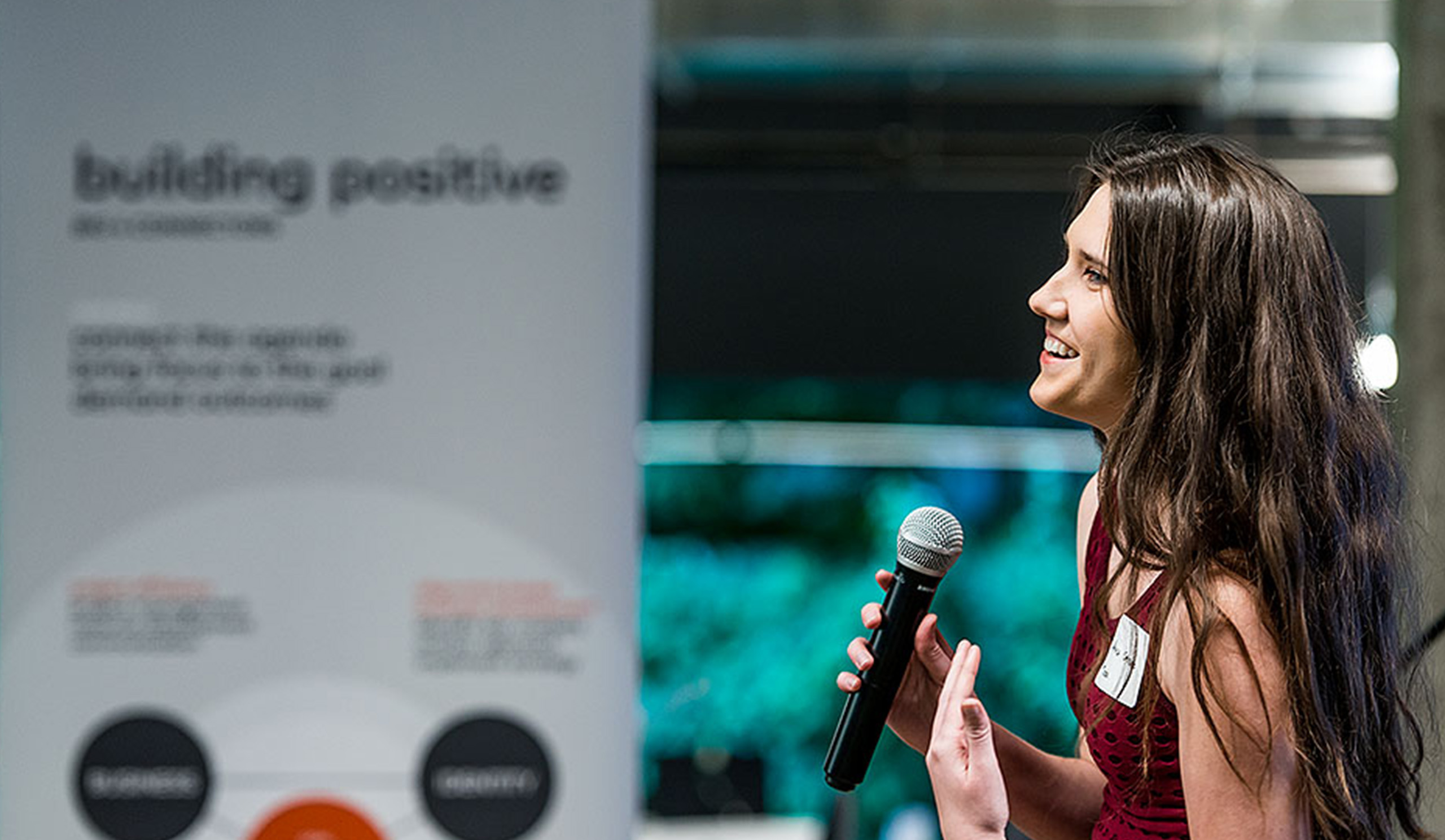
Guest Post: A Different Type of Building
We often say, “BNIM is Building Positive.” This phrase describes how we leverage our collective knowledge and design-thinking to solve global issues and build the positive attributes of community. Typically, we use this phrase to describe challenges within the built environment. However, Building Positive also requires that we examine our own office culture — and the culture in which we all work — to see how we can better support each other to ensure collective success. As part of this exploration, we asked Rania Anderson to share her insight on how to empower women in the industry.
BNIM designs buildings that help people be more productive. And, while the right environment is an essential ingredient to success, what’s most important is having the right mix of people working together. We know unequivocally that diverse teams produce better results. Your success as a leader and manager is dependent on your ability to build a diverse team. The most under-leveraged type of diversity in our economy is the inclusion and advancement of more women in our workplaces and in leadership roles. Here are nine actions you can take to build your gender-balanced, high performing team.
1 Make room at the table.
When planning or attending meetings, take a look at the invite list. Are women (plural, not singular) included? If not, insist that women are involved both in participating and in decision-making.

2 Amplify and support women’s input.
In meetings, emails, or other communications, when a woman shares a good idea, amplify her perspective and be vocal in your support. “Great idea, Tracy! Can you give us more details on how that would work?”
3 Encourage her participation.
If you haven’t heard from women on your team or in a meeting, directly ask for their perspective.“Elizabeth, what do you think about Gary’s proposal?”
4 Promote her contributions.
Look for and recognize the contributions of your female colleagues in public. Don’t assume others have noticed your female colleagues results on their own. Be explicit, use her name, and note the accomplishment. “Evelyn, your results this quarter are stellar. I appreciate the creativity you’ve shown in pursuing new clients.”
5 Sponsor her.
Mentoring colleagues is necessary to their development. But, mentoring alone is not enough. High performers need more than mentorship. When you mentor someone, you give them advice and guidance. High performers also need someone to advocate, champion or sponsor them. When you sponsor someone you provide her with challenging, visible assignments and opportunities that give her the opportunity to advance. If you’d like to know more about being a sponsor, take a look here.
6 Network with women.
Intentionally build out your professional network with more women in your company, industry, and community. Make it a regular practice to have lunch with female colleagues or clients. Ensure women feel welcome participating in gatherings by picking activities and locations where they and everyone can be comfortable.
7 Be flexible.
When planning projects, executing tasks, or scheduling meetings, take the individual needs of your teammates into consideration. If possible, don’t schedule super early morning or late evening meetings. Measure results not time in the office. If possible, allow flexible hours, different types of work arrangements, and offsite participation.
8 Shut it down.
Have zero tolerance for sexual misconduct. If a coworker speaks down to, describes a woman’s actions in a demeaning way (such as “shrill” or “bossy”), or uses derogatory words to refer to her — or worse yet, harasses a woman — step in and convey that the behavior is completely unacceptable. Simply and directly say something like: “NOT cool!” If the action is egregious, reach out to human resources or anyone with the authority to address the behavior.
9 Be transparent about your own life.
Many leaders are stuck in an old paradigm continuing to believe that only women require flexible work hours and have life demands that impact their work schedules. While women continue to carry more responsibility for family needs, increasingly men share the load and want more flexibility to spend time with family and on their own interests. You can change this erroneous assumption about women if you are more transparent about your schedule, parenting involvement and needs. Instead of not sharing why you need to leave a meeting or leave the office early, if you are specific about why you are leaving, you can change norms and expectations. For example: “I need to leave at 3:00 to pick up my son (or mother).” Or, “I’d prefer it if we didn’t start this meeting at 5:00 pm. I’d like to get home by 6:30 pm for dinner with my family.”
These nine actions will help you build an inclusive environment for all types of people: millennials, minorities, people of different religions, backgrounds, not just for women. Leaders who take these types of actions are more successful. Give them a try!


